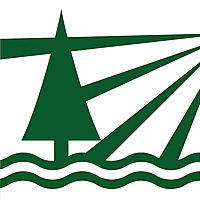Charles C. Jones Seminar
Lateral Field Excited Acoustic Wave Sensing Platform with Professor John Vetelino, University of Maine
Abstract- Currently a critical need exists for portable hand held sensor systems with very low limits of detection (LOD) for applications ranging from homeland security to the detection of biomarkers associated with diseases such as cancer. The critical component in a sensor system responsible for achieving LODs and therefore high sensitivity is the sensing platform upon which a selective target recognition element is attached. For the last decade, researchers at the University of Maine (UM) have been studying a lateral field excited acoustic wave (LFE) sensing platform for detecting both biological and chemical analytes in gaseous and liquid environments. The LFE platform can sensitively detect both electrical and mechanical property changes in a recognition element that has captured a target analyte. This is in contrast to the standard quartz crystal monitor (QCM) which can only detect mechanical property changes. After a brief review of different acoustic wave sensing platforms, the theory and application of the LFE platform in detecting chemical and biological analytes is presented. Finally, ongoing and future research relating to LFE sensing platforms is presented.
Bio- John F. Vetelino received his B.S., M.S. and Ph.D. degrees in Electrical Engineering from the University of Rhode Island in 1964, 1966 and 1969, respectively. He has been with the University of Maine (UM) since 1969 and currently is a Professor of Electrical and Computer Engineering. He is one of the founding members of the Laboratory for Surface Science and Technology at UM and is currently the leader of the solid-state sensor group.
His research group is working on chemical and biological sensors based on acoustic wave and chemiresistive technology. In 1976, he was with the Max Planck Institute Fuer Festkorperforschung, Stuttgart, Germany working on solid-state properties of piezoelectric crystals. In 1980, he received the Presidential Research Achievement Award given annually to the outstanding researcher at UM. From 1983 to 1987 he was Chairman of the UM Electrical Engineering Department. He received the Distinguished Maine Professor Award in 2008 and became an IEEE Fellow in 2010.
Dr. Vetelino has given invited talks at many universities in the U.S. and abroad and at national and international conferences. He has published several invited papers and received outstanding paper awards at the International Chemical Sensors Meeting, the Society of Plastic Engineers Conference and the IEEE Ultrasonics Symposium. He was a guest editor of the special issue on Sensors and Actuators of the IEEE Transactions on Ultrasonics Ferroelectrics and Frequency Control in 1998. He is a member of the Technical Program Committee for the IEEE Ultrasonics Group and the Steering Committee for the International Chemical Sensors Meeting. His research group has incubated four sensor companies - the BIODE Corporation, Westbrook, ME, Microsensor Conversion Technology, Brookings SD, USA, Sensor Research and Development Corporation, Orono, ME and Mainely Sensors LLC, Orono, ME. He is a member of Phi Kappa Phi, Sigma Xi, Tau Beta Pi and Eta Kappa Nu. He has advised more than 50 graduate students to M.S. and Ph.D. degrees and has published more than 200 scientific papers.
